ICE
Latest

Records reveal the scale of Homeland Security's phone location data purchases
Records show Homeland Security bought massive amounts of phone location data — including a huge burst in 2018.
Jon Fingas07.18.2022
Engadget Podcast: The crypto crash explained
This week, Devindra and Engadget's Mat Smith dive into the crypto crash with Manda Farough, co-host and producer of the Virtual Economy Podcast.
Devindra Hardawar05.20.2022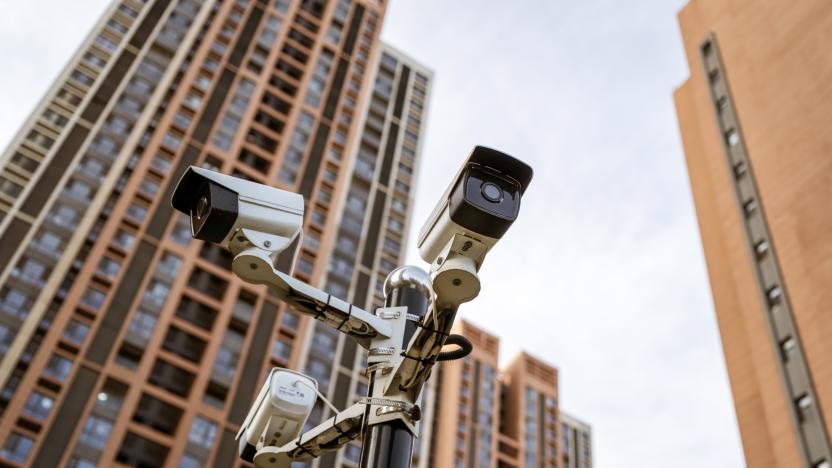
ICE 'now operates as a domestic surveillance agency,' think tank says
A study by the Center on Privacy and Technology found that ICE uses data brokers to avoid restrictions.
Kris Holt05.10.2022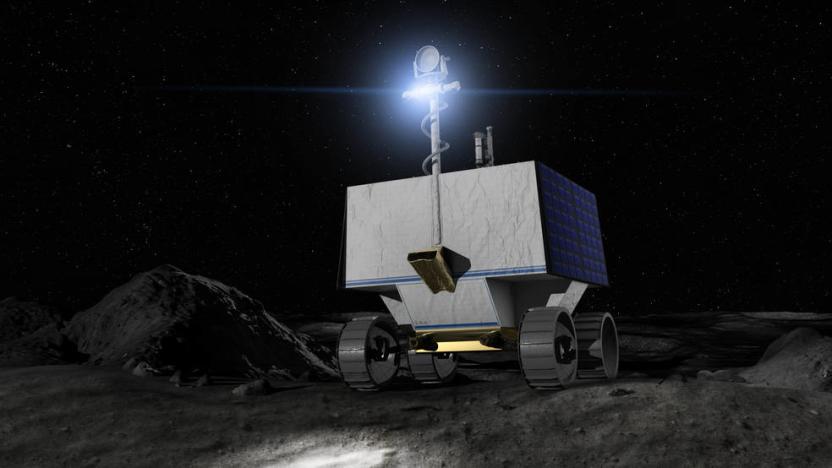
NASA's VIPER Rover will explore the moon's Nobile Crater
During a teleconference with journalists on Monday, NASA researchers revealed the decided landing and exploration site for its upcoming VIPER lunar ice survey.
Andrew Tarantola09.20.2021
NASA's first lunar rover will scour the moon's south pole for water in 2023
If we're ever going to establish a permanent human presence on the moon, we'll need water, and lots of it. NASA's VIPER lunar rover is going find it for us.
Andrew Tarantola09.03.2021
Senators push for investigation into CBP use of phone location data
Democratic lawmakers want an inspector general investigation into US Customs and Border Protection's use of location data.
Igor Bonifacic10.23.2020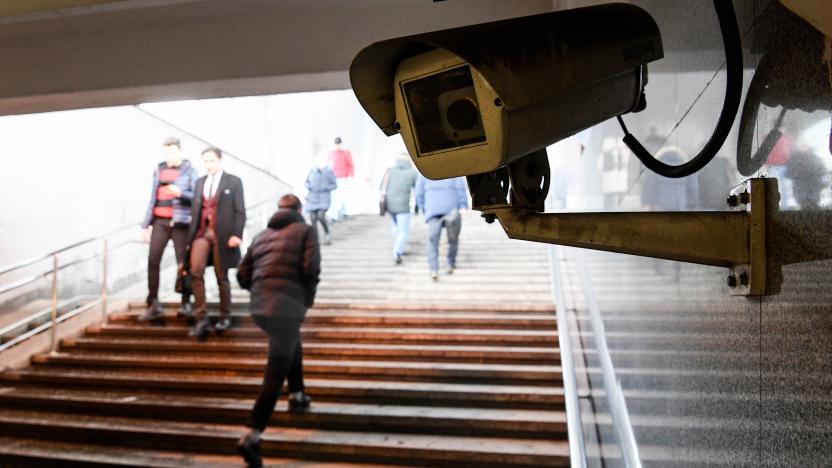
Clearview AI wins an ICE contract as it prepares to defend itself in court
It's the sort of scenario privacy advocates feared when the public learned about Clearview.
Kris Holt08.14.2020
Arctic communities are living in a future nobody wants
Of all the many tangible climate change impacts, none may be bigger than coastal erosion and permafrost slump.
Ryan Strother05.28.2020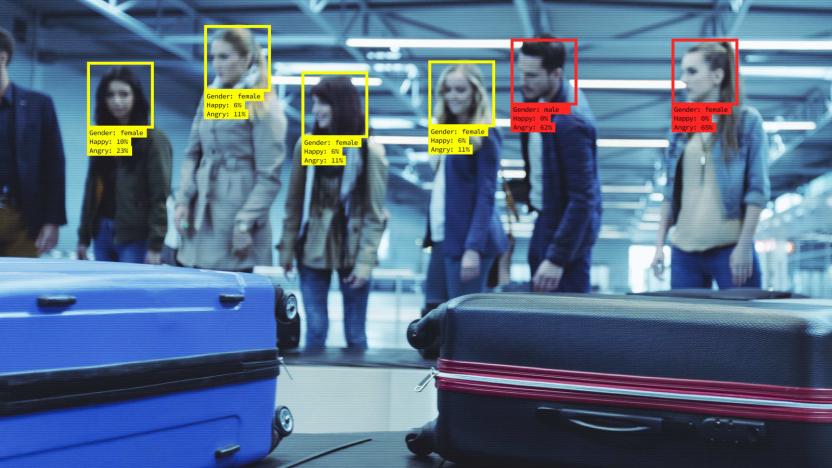
ACLU sues Homeland Security over airport facial recognition records
There's no question that AI surveillance is on the rise, but there are a lot of questions about just how extensively law enforcement agencies, like the Department of Homeland Security (DHS), are using it. In an attempt to increase transparency, the American Civil Liberties Union (ACLU) is suing DHS -- along with Customs and Border Protection (CBP), Immigration and Customs Enforcement (ICE) and the Transportation Security Administration (TSA). The ACLU is requesting records on the use of face surveillance at airports and borders, as well as the agencies' plans for future use.
Christine Fisher03.12.2020
Clearview AI leak names businesses using its facial recognition database
One of the most vehement arguments against Clearview AI's practice of scraping billions of photos from millions of public websites to build its facial recognition database was that the company's data storage and security protocols were both untested and unregulated. On Wednesday, Clearview AI claimed that its facial recognition database was hacked, giving intruders access the the company's full client list, which Buzzfeed News has acquired.
Andrew Tarantola02.27.2020
Antarctica is hotter than it's ever been
Temperatures in Antarctica have reached a record high. According to Argentinian research station thermometer, the temperature climbed to 18.3 degrees Celsius, or 64.9 degrees Fahrenheit. That beats Antarctica's previous record of 63.5 degrees, measured in March 2015, by nearly 1.5 degrees Fahrenheit.
Christine Fisher02.07.2020
Federal agencies reportedly bought phone location data to track immigrants
Since at least 2017, the US federal government has been buying commercially-available cellphone location data to aid in immigration and border-related enforcement actions, according to a report from The Wall Street Journal. The data is the type of anonymized location information that analytics firms typically sell to digital advertisers so that they target specific consumers. In other words, it's information most people consent to sharing every time they install a new app on their phone.
Igor Bonifacic02.07.2020
NASA finds 'water ice' just below the surface of Mars
To explore the solar system beyond our planet, one important factor is the ability to locate water which can be used for drinking and for creating rocket fuel. To assist in the hunt for water on neighboring Mars, NASA has released a "treasure map" of potential ice locations on the red planet.
Georgina Torbet12.12.2019
Human patient put in suspended animation for the first time
Scientists (and sci-fi fans) have been talking about suspended animation for years. The idea that the functions of the human body can somehow be put on "pause" while life-saving medical procedures are performed (or a person is sent into space, a la Alien) has long seemed untenable -- until now. According to New Scientist, doctors have successfully placed humans in suspended animation for the first time, in a trial that could have an enormous influence on the future of emergency room surgery.
Rachel England11.20.2019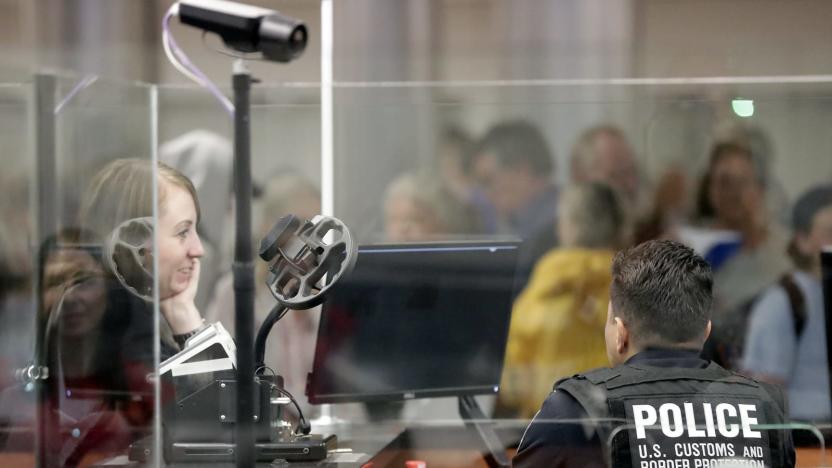
Federal judge rules suspicionless device searches at the border are illegal
Civil liberties advocates just scored an important victory in a bid to prevent arbitrary device searches at the US border. A federal court handling a 2017 lawsuit has ruled that US policies allowing device searches without valid suspicion or warrants violate Fourth Amendment protections against unreasonable searches and seizures. Judge Denise Casper noted that an exemption for searches at the border was "not limitless," and still needed to strike a balance between privacy and government interests. That usually means focusing on contraband, she said.
Jon Fingas11.12.2019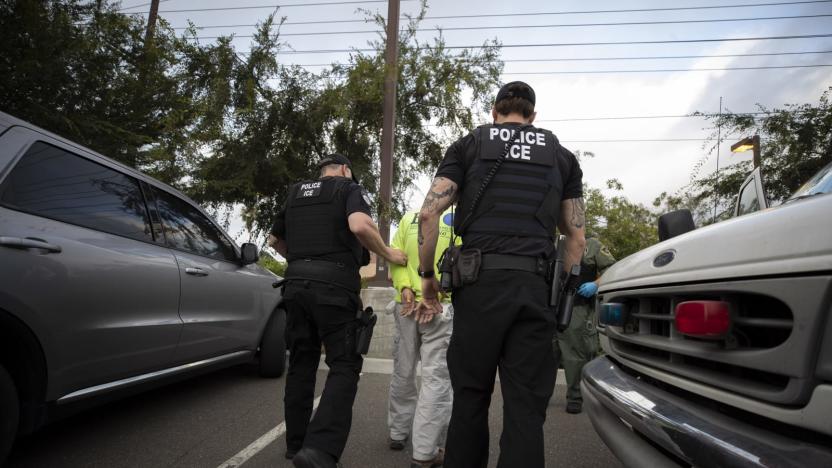
Recommended Reading: The ICE surveillance playbook
How ICE picks its targets in the surveillance age McKenzie Funk, The New York Times Through the lens of officers operating in the Pacific Northwest, The New York Times explains how Immigration and Customs Enforcement (ICE) collects information on possible targets. That includes monitoring social media accounts and tapping into "the world's largest privately run database of license-plate scans."
Billy Steele10.05.2019
DoJ pushes Google and Apple to ID 10,000 users of a gun scope app
The US government has reportedly ordered Apple and Google to hand over the names, phone numbers and IP addresses of at least 10,000 users of a gun scope app. The data request is part of an investigation into weapons export violations, but it has privacy experts understandably concerned. According to Forbes, this is the first known case of US investigators demanding personal data from users of a single app from Apple and Google.
Christine Fisher09.06.2019
Google employees don't want it to work with US border agencies
In a newly published petition, Google employees are demanding the search giant not bid on a recent cloud computing contract from the US Customs and Border Protection (CBP) agency.
Igor Bonifacic08.14.2019
FBI and ICE use DMV photos as 'gold mine' for facial recognition data
Cities and companies might be turning away from facial recognition, but federal agents are embracing it -- whether or not the public is fully aware of what's happening. Georgetown Law researchers and the Washington Post have discovered that FBI and ICE investigators have been using state DMVs as a "gold mine" for facial recognition data, scanning hundreds of millions of photos to create an unofficial surveillance infrastructure. Officers routinely use the info to help track down suspects in "low-level" crimes like petty theft, and they use it frequently -- the FBI by itself conducts 4,000 facial recognition searches per month.
Jon Fingas07.07.2019
Senators propose legislation to protect your phone at the border
For years, US border agents have been demanding access to digital devices as people pass into and out of the country. The practice has raised red flags and lawsuits, and the number of searches has spiked under the Trump Administration. Last month, the ACLU charged federal agents with wielding "near-unfettered authority" to search phones, PCs and other devices. Yesterday, Senators Ron Wyden (D-OR) and Rand Paul (R-KY) introduced a bill that would require agents to obtain a warrant or written consent before they crack open digital devices and snag users' data.
Christine Fisher05.23.2019